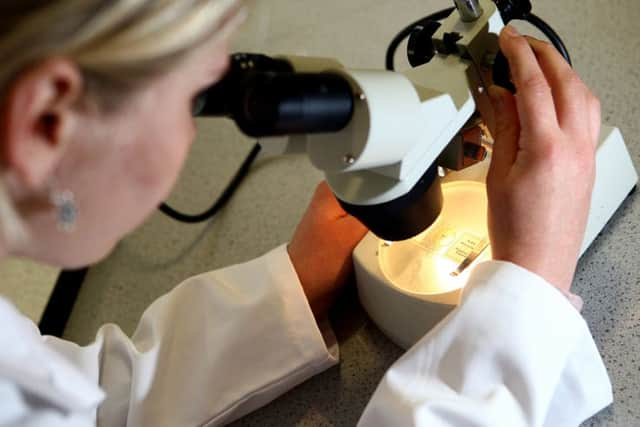Why cancer survival rates could go backwards in Birmingham and Solihull
This article contains affiliate links. We may earn a small commission on items purchased through this article, but that does not affect our editorial judgement.
and live on Freeview channel 276
More than 1,000 cancers are not discovered until they have progressed to the most deadly stage of illness in Birmingham and Solihull, new figures show.
A "cancer catastrophe" could be on the cards if more is not done to reduce the number of people receiving late diagnoses, according to charity Cancer Research UK.
Advertisement
Hide AdAdvertisement
Hide AdTens of thousands of cancer cases reached the most severe stage of illness before being detected across England in 2019 – the most recent figures available from NHS Digital.
At least 1,093 cases diagnosed by medics in the NHS Birmingham and Solihull CCG area had reached an advanced stage at the point of diagnosis that year.
Cancer Research UK said there are concerns that survival rates could "go backwards" as a result of the coronavirus pandemic’s impact upon the NHS.
Why has Cancer Research UK issued this warning?
Before cancer patients embark upon treatment, doctors commonly use staging techniques to establish how severe the disease is and how far it has spread.
Advertisement
Hide AdAdvertisement
Hide AdThe stages, which range in severity from zero to four, are used to describe the size of tumours and to determine how far the cancer has spread from where it originated.
There were 5,761 cancers diagnosed in Birmingham and Solihull in 2019 and stage four diagnoses, which carry the greatest mortality risk, represented 25% of those with a valid stage identified.
However, that was down from the 26% recorded the year before.


Figures for CCGs across England show some cancers are far more likely to be diagnosed late than others, with those affecting the pancreas, lungs and oesophagus among those the most likely to be detected at an advanced stage – often because they do not cause symptoms until a later stage.
Advertisement
Hide AdAdvertisement
Hide AdThey are among those represented by the Less Survivable Cancers Taskforce, which launched in 2017.
The taskforce, made up of six different charities, is launching its first awareness day on January 11 to highlight the importance of early diagnosis in improving survival rates.
In the area covered by the NHS Birmingham and Solihull CCG, 41% of the 723 lung cancers detected in 2019 were at stage four when found, as were 57% of 172 pancreatic cancers and 38% of 185 oesophageal cases.
Patients diagnosed at the earliest stage are between five and 10 times more likely to survive at least five years compared to those diagnosed at stage four.
What has Cancer Research UK advised is the best way to save lives?
Advertisement
Hide AdAdvertisement
Hide AdDr Jodie Moffat, head of early diagnosis at Cancer Research UK, said reducing the number of people diagnosed with advanced disease was crucial to saving lives and swift action was needed from the Government and NHS.
Dr Moffatt added: “Many factors can impact late diagnoses, and Covid has affected many of these, such as how readily people come forward with symptoms, or how long people need to wait for tests.
"Worryingly, waits for a cancer diagnosis and treatment were struggling well before the pandemic hit.
"Chronic shortages in staff and equipment mean cancer waiting times have been missed for years."
What has the NHS said about the late diagnosis of cancer?
Advertisement
Hide AdAdvertisement
Hide AdAn NHS spokeswoman said the health service was committed to ensuring that 75% of cancers are detected at stage one by 2028, adding that 95% of those diagnosed since March 2020 began treatment within a month.
A Department of Health and Social Care spokesman said cancer diagnosis and treatment is a priority for the Government, adding that £10 billion was being invested in cutting waiting times.
A message from the editor:
Thank you for reading. BirminghamWorld is Birmingham’s latest news website, championing everything that is great about our city - reporting on news, lifestyle and sport. We want to start a community among our readers, so please follow us on Facebook,Twitter and Instagram, and keep the conversation going.
Comment Guidelines
National World encourages reader discussion on our stories. User feedback, insights and back-and-forth exchanges add a rich layer of context to reporting. Please review our Community Guidelines before commenting.